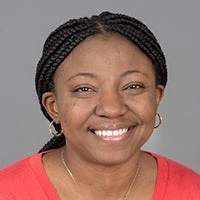 A woman cares for three young children in Onitsha, Nigeria, in October 2025. / Photo: Shutterstock
A woman cares for three young children in Onitsha, Nigeria, in October 2025. / Photo: Shutterstock
Nigeria is home to one of the world’s youngest populations. Out of more than 200 million Nigerians, over 82 million are under the age of 14. With this demographic, the country has the potential to become a powerful engine of prosperity and inclusive growth. The foundation of that opportunity begins with investments in early childhood development.
Recognizing this reality, and aiming to support Nigeria with robust data to inform interventions, the World Bank has just released the report Understanding Early Childhood Development (ECD) in Nigeria. It provides, for the first time, a longitudinal look at the executive functioning and academic performance of preschool children aged 4 to 6, facilitated by the integration of ECD-related data collection into a national and longitudinal survey. The report was produced by the Living Standards Measurement Study (LSMS) — the World Bank’s flagship household survey program — in collaboration with the World Bank’s Education Global Department and financial support from the Early Learning Partnership (ELP) .
The report underscores how critical these years are for shaping a child’s cognitive abilities, emotional and physical wellbeing and future potential. While it uncovers significant challenges — including poverty, malnutrition, limited stimulation, and inadequate early learning — it also allows the identification of areas in which investments can have the greatest impact in early childhood. By understanding how children grow and develop at that stage, Nigeria can design and implement targeted policies in education, health, and social protection.
Based on Nigeria’s General Household Survey – Panel (GHS-Panel) 2023/24, the report evaluates children’s progress across four key developmental areas: literacy, numeracy, social-emotional skills and executive function, as well as the implications of the findings for their future educational readiness and workforce prospects.
The conclusions are clear. Without a purposeful and multi-sectoral investment, many children — especially in the rural north — are at risk of being left behind, even before formal education begins. If this situation is left unaddressed, Nigeria’s future workforce will not be properly equipped to drive inclusive growth.
Key findings: regional divide, education and nutrition
This report offers valuable insights into the drivers of learning and wellbeing in early childhood, essential to understand how children aged 4 to 6 learn and adapt. To gather this information, the team who worked on the report used the GHS-Panel data elicited with the World Bank’s Anchor Items for the Measurement of Early Childhood Development (AIM-ECD) caregiver module.
The resulting picture is mixed: literacy lags, numeracy is stronger comparatively, social-emotional skills are encouraging, and executive functioning varies.
Figure 1: ECD results by development categories

An in-depth analysis of the data reveals:
- Stark divides hide beneath averages. Children living in urban areas consistently outperform rural peers, especially in literacy. In the Southwest, 65% of children can write a simple word. In contrast, in the Northwest, only 10% can do it, a staggering 55% gap that reflects deep and persistent regional inequality.
- Powerful levers lie closer to home. Geography, however, does not decide a child’s fate. The report also shows that school attendance is crucial, as a four-year-old can outperform a six-year-old who does not attend school. Access to early childhood education is associated with better learning outcomes and has long-lasting impacts on school attendance and retention.
- Daycare boosts Early Childhood Development. Children who attend daycare are about 50% more likely to name at least ten letters and count from 1 to 10. They also show notable gains in social-emotional skills when compared to those who do not.
- Maternal education has a striking role. Just 9% of children whose mothers have no schooling can write a word, compared to a remarkable 75% of those whose mothers have completed tertiary education.
- Books at home greatly improve learning outcomes. Children with access to at least one book at home are 50% more likely to write a simple word than those without any books (69% vs. 18%).
- Nutrition shapes cognitive development. The data demonstrates that stunted children perform significantly worse on basic literacy and numeracy tasks, reinforcing the link between malnutrition and developmental delays. Given that 40% of Nigerian children are stunted, addressing this reality is essential.
Figure 2: ECD results by stunting status

Policy recommendations: investment, integration and early action
The Understanding Early Childhood Development (ECD) in Nigeria report, led by the World Bank’s LSMS and Education Global Department, is a roadmap to strengthen the country’s future workforce and its economy.
To harness Nigeria’s demographic potential, investments must prioritize stunting reduction and early education. With nearly 4 in 10 children stunted, cognitive and learning delays are hardwired even before preschool begins. Without addressing stunting, even the best early learning strategies may struggle to deliver lasting results. In addition, expanding access to quality education — particularly in rural and northern areas — can bridge developmental gaps, while early school enrollment can improve academic performance.
The integration of robust ECD measurement tools, like the World Bank’s Anchor Items for the Measurement of Early Childhood Development (AIM-ECD) module, into large-scale multi-topic national surveys should continue and evolve to include additional factors such as disability, early stimulation at home and parenting practices, enabling more inclusive and effective ECD policymaking.
This report is a milestone, but also a reminder of how much we still need to know. While it focuses on children aged 4 to 6, the development window begins earlier, during pregnancy and the first three years of life. Expanding ECD measurement and interventions to include babies and toddlers ought to be a top national priority, as this can shift Nigeria’s long-term development trajectory.
Nigeria stands at a crossroads. Without urgent and data-informed targeted actions, regional and socioeconomic disparities will continue to hold millions of children back. As Africa’s most populous nation and regional economic engine, Nigeria has the power to lead the way beyond its borders. Hence, its approach to tackling malnutrition and investing in early childhood development can set the tone not just for its own future, but for West Africa at large.
This is a responsibility and an opportunity that cannot be overlooked. This report is a wake-up call, urgent action is needed, because the decisions taken now can significantly improve the future of Nigeria’s youngest generation, and of the region.








Join the Conversation